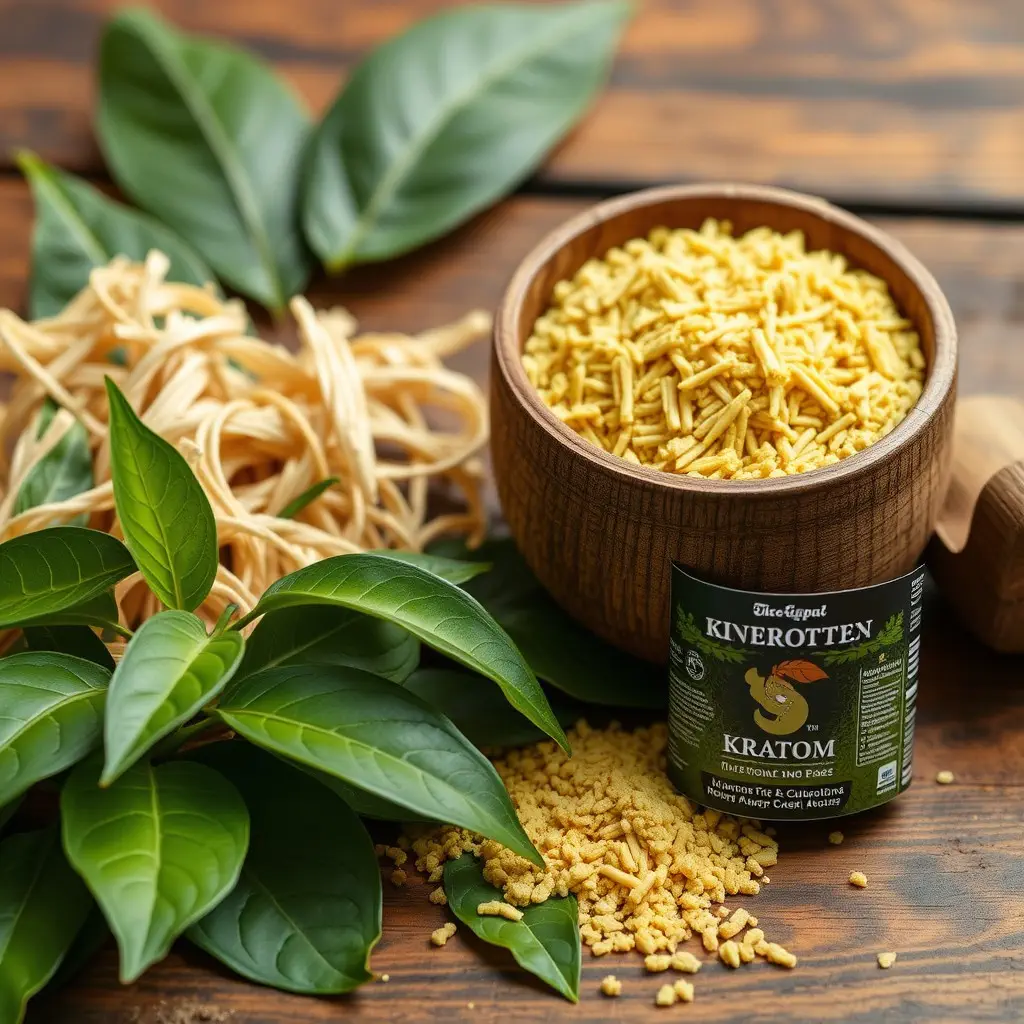Black Maeng Da Kratom, a potent form of Mitragyna speciosa, is recognized for its balanced stimulating and sedating effects, which may offer pain relief, mood elevation, and potential cognitive enhancement due to its alkaloid content, including mitragynine and 7-hydroxymitragynine. The military's stance on kratom usage is significant, with the Army's substance abuse policies reflecting a cautious approach to its use due to its interaction with opioid receptors. As of 2023, the DEA has not classified Maeng Da as a controlled substance federally, but legal status can vary by state and military branch. The FDA does not endorse kratom consumption, underscoring ongoing debates about its safety and efficacy. For Army personnel, it's important to be aware that while drug testing may not explicitly screen for kratom, its metabolites could result in a positive opioid test, potentially leading to disciplinary action. Service members should consult with medical providers or unit leadership before using kratom to ensure compliance with military regulations and engage in safe consumption practices, including verifying product authenticity and quality, following recommended dosages, and monitoring health effectively. Transparency with healthcare providers about kratom use is critical for informed decision-making and aligning with a comprehensive health plan.
Black Maeng Da Kratom powder, renowned for its potency and effects, has garnered attention within various communities, including among military personnel. As this article delves into the nuances of its use, it’s crucial to navigate the complexities surrounding its legalities, safety measures, and the implications for those in service. With a focus on how Black Maeng Da intersects with army regulations, we explore the relationship between military members and kratom consumption, addressing pertinent concerns such as testing policies within the armed forces. Understanding the intricacies of this plant’s influence is paramount for responsible use, especially in the context of military life. Does the army test for kratom? This article sheds light on these critical aspects, offering a comprehensive guide to safely engage with Black Maeng Da Kratom Powder.
- Unraveling the Potency of Black Maeng Da Kratom Powder: A Comprehensive Guide
- The Relationship Between Military Personnel and Kratom Use: Addressing Concerns and Testing Policies
- Navigating Legalities and Safety Measures: How to Consume Black Maeng Da Kratom Responsibly While Considering Army Regulations
Unraveling the Potency of Black Maeng Da Kratom Powder: A Comprehensive Guide

Black Maeng Da Kratom Powder is a variant of Mitragyna speciosa, a plant indigenous to Southeast Asia, known for its distinct alkaloid profile and potent effects. The leaves from which this powder is derived are harvested at their peak maturity, ensuring the highest concentration of active compounds. Maeng Da, translating to “Pimp Leaves” in Thai, refers to the matured leaves that are believed to contain a more concentrated alkaloid profile compared to younger leaves. This potency is often associated with a more pronounced and long-lasting effect.
When considering the effects of Black Maeng Da Kratom Powder, it’s important to understand its interaction with the body’s opioid receptors. Alkaloids like mitragynine and 7-hydroxymitragynine are thought to influence these receptors, which may contribute to the reported sensations of well-being, energy enhancement, or relaxation. Users often report a fine balance between stimulating and sedating effects, making it a versatile choice for individuals seeking pain relief, mood elevation, or an increase in cognitive function. While discussions about the Army’s stance on kratom usage are present—as evidenced by queries like “does the army test for kratom”—it’s crucial to note that the legal status and testing policies regarding kratom can vary by branch and jurisdiction. Users interested in incorporating Black Maeng Da Kratom Powder into their routine should consider these factors, especially if they are part of a regulated organization or operate within specific legal frameworks. Understanding the nuances of its effects, potential benefits, and regulatory considerations is essential for anyone looking to explore this herbal supplement responsibly.
The Relationship Between Military Personnel and Kratom Use: Addressing Concerns and Testing Policies

Military personnel face unique challenges, both physically and mentally, due to the demands of service. In recent years, there has been growing interest in alternative supplements for stress management and pain relief among active-duty service members and veterans alike. Kratom, a botanical product derived from the leaves of the Mitragyna speciosa tree native to Southeast Asia, has garnered attention within this community for its potential benefits. The alkaloids present in kratom are said to interact with opioid receptors in the brain, offering effects that range from pain relief to increased energy and mood enhancement. However, the use of kratom raises concerns regarding its interaction with military protocols and the potential for misuse or dependency.
The United States Army has strict policies regarding substance use and misconduct. The military’s drug testing policies are designed to maintain operational readiness and ensure the health and safety of all personnel. As such, does the army test for kratom becomes a pertinent question for those in service. The current drug testing panels used by the military do not specifically screen for kratom; however, its metabolites may be detected under broader opioid tests. This ambiguity has led to a complex situation where individuals using kratom could potentially face consequences similar to those for using traditional opioids, despite the differences in their effects and intended uses. The Army’s stance on kratom is evolving as more research becomes available, and it remains crucial for military personnel to stay informed about the latest guidance from their command and the medical corps regarding the use of such supplements. Understanding the Army’s policies and staying within the bounds of regulation are essential for service members to ensure they do not negatively impact their careers or health through unauthorized substance use.
Navigating Legalities and Safety Measures: How to Consume Black Maeng Da Kratom Responsibly While Considering Army Regulations

When incorporating Black Maeng Da Kratom into your regimen, it is imperative to navigate both the legal frameworks and safety protocols that govern its use. As of the knowledge cutoff in 2023, the DEA has not classified Maeng Da as a controlled substance at the federal level; however, individual states may have varying regulations. It is crucial to verify the current legal status within your jurisdiction before consumption. The FDA does not approve kratom for human use, which includes Maeng Da, and there are ongoing discussions about its safety and potential benefits versus risks.
For those in military service, understanding the implications of kratom usage is essential, given the stringent drug testing policies enforced by the Army. The Army’s regulations aim to maintain the health, safety, and performance of soldiers, which includes rigorous testing for substances that may impair their duties. Consuming Black Maeng Da Kratom should be done with careful consideration of these regulations. Soldiers considering the use of kratom should consult with their medical providers or unit leadership to ensure compliance with Army standards. Safety measures to responsibly consume kratom include adhering to recommended dosages, avoiding mixing with other substances, and being aware of the product’s source for quality assurance. Regular bloodwork and monitoring can also be part of a responsible consumption practice, as it can help detect any adverse effects or interactions with medications. Always prioritize transparency with healthcare providers about your supplement use to receive informed guidance on its compatibility with your overall health plan and any prescription medications you may be taking.
Black Maeng Da Kratom powder, a potent variant of the Mitragyna speciosa plant, has garnered significant attention, particularly within military communities. This comprehensive guide has delved into its efficacy and the nuanced relationship between its use and military personnel, addressing concerns and elucidating the complexities surrounding testing policies such as those related to does the army test for kratom. Furthermore, the article has navigated the intricate legal landscape and safety measures necessary for responsible consumption in compliance with army regulations. It is crucial for individuals to approach the use of Black Maeng Da Kratom with a balanced understanding of its effects and the strictures governing military service. Prospective users are advised to seek informed guidance and adhere to legal and regulatory frameworks to ensure both personal well-being and service commitment are upheld.






